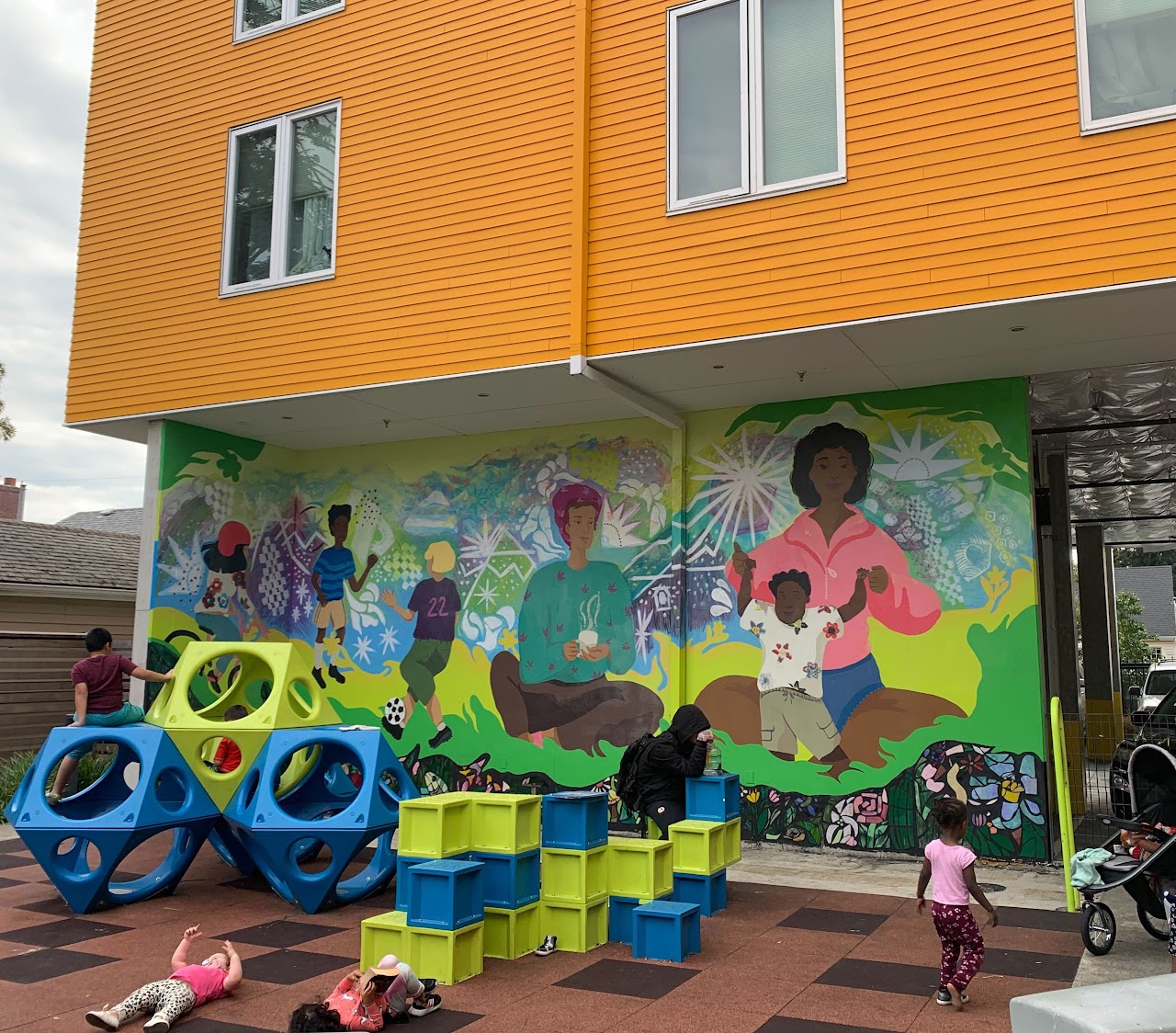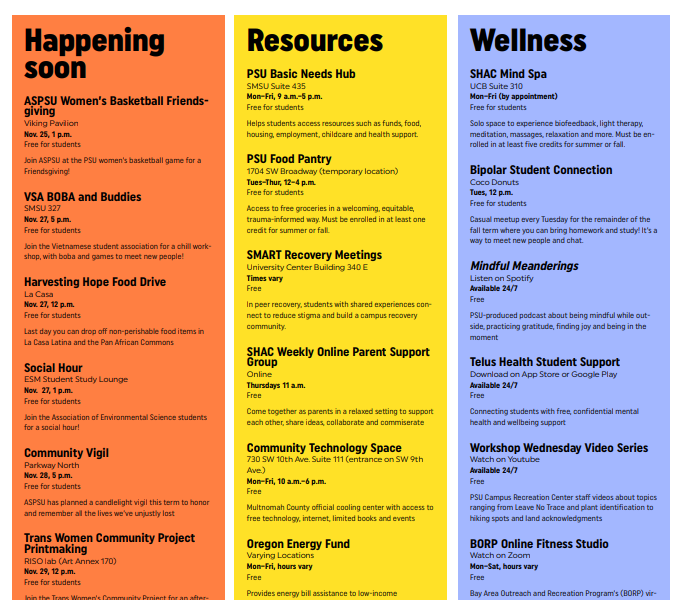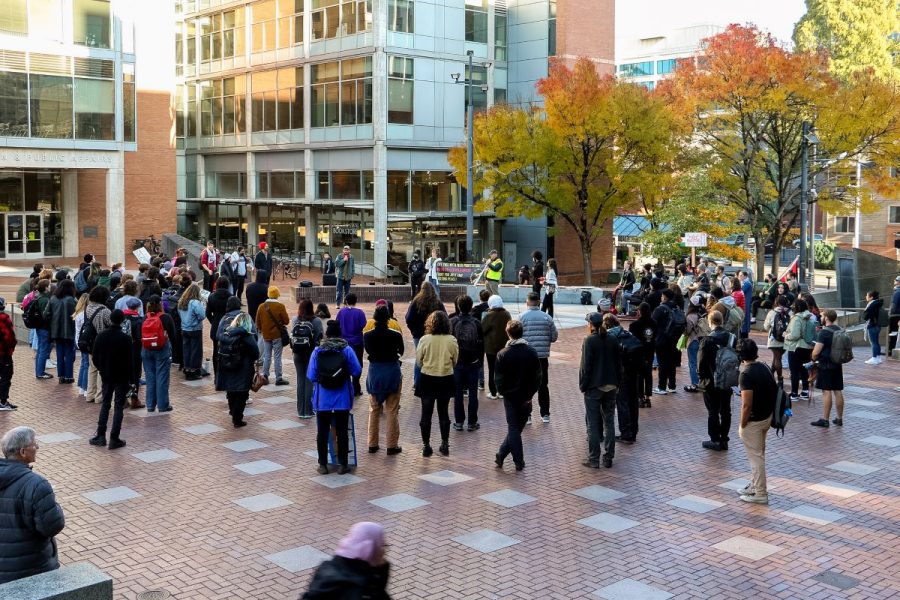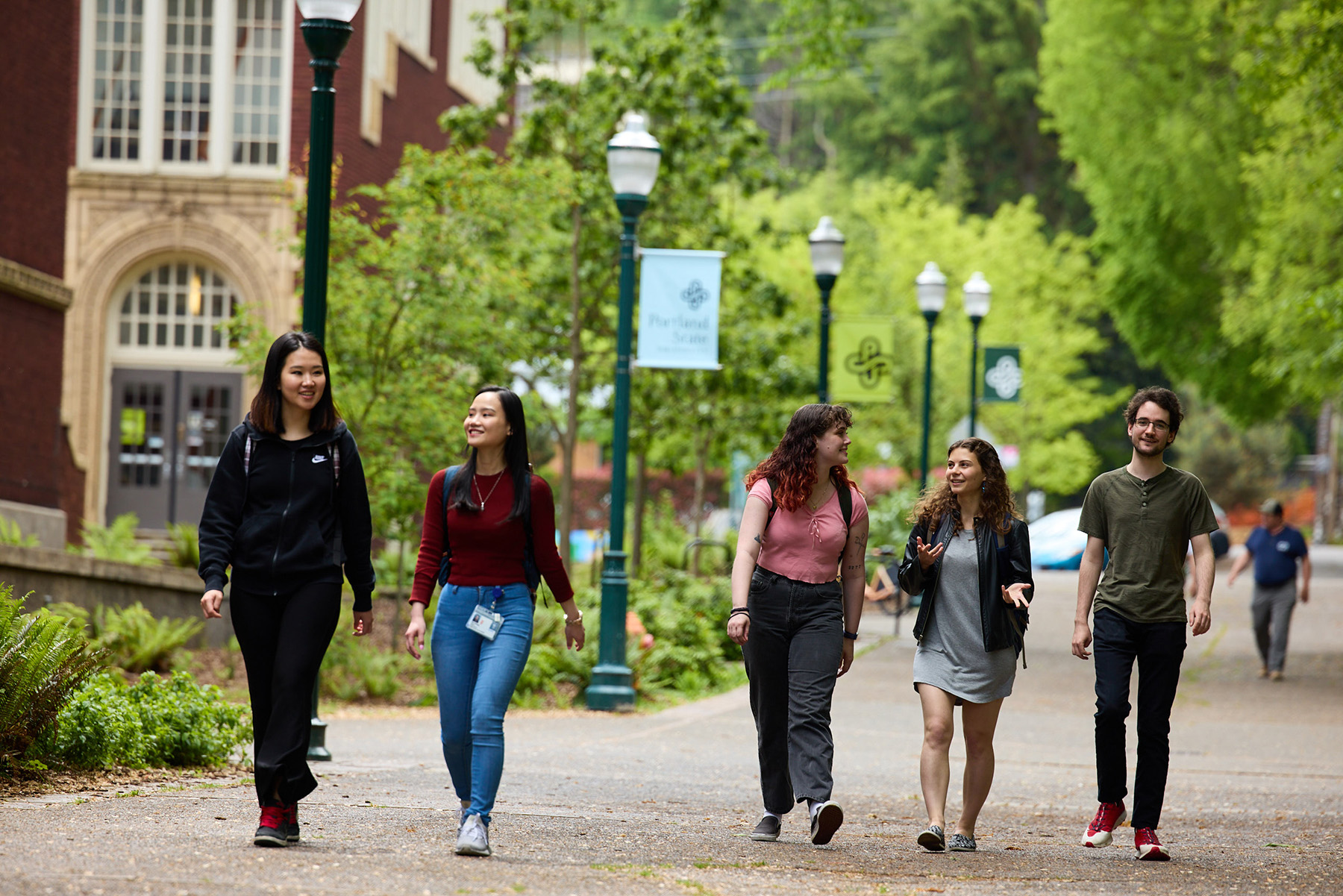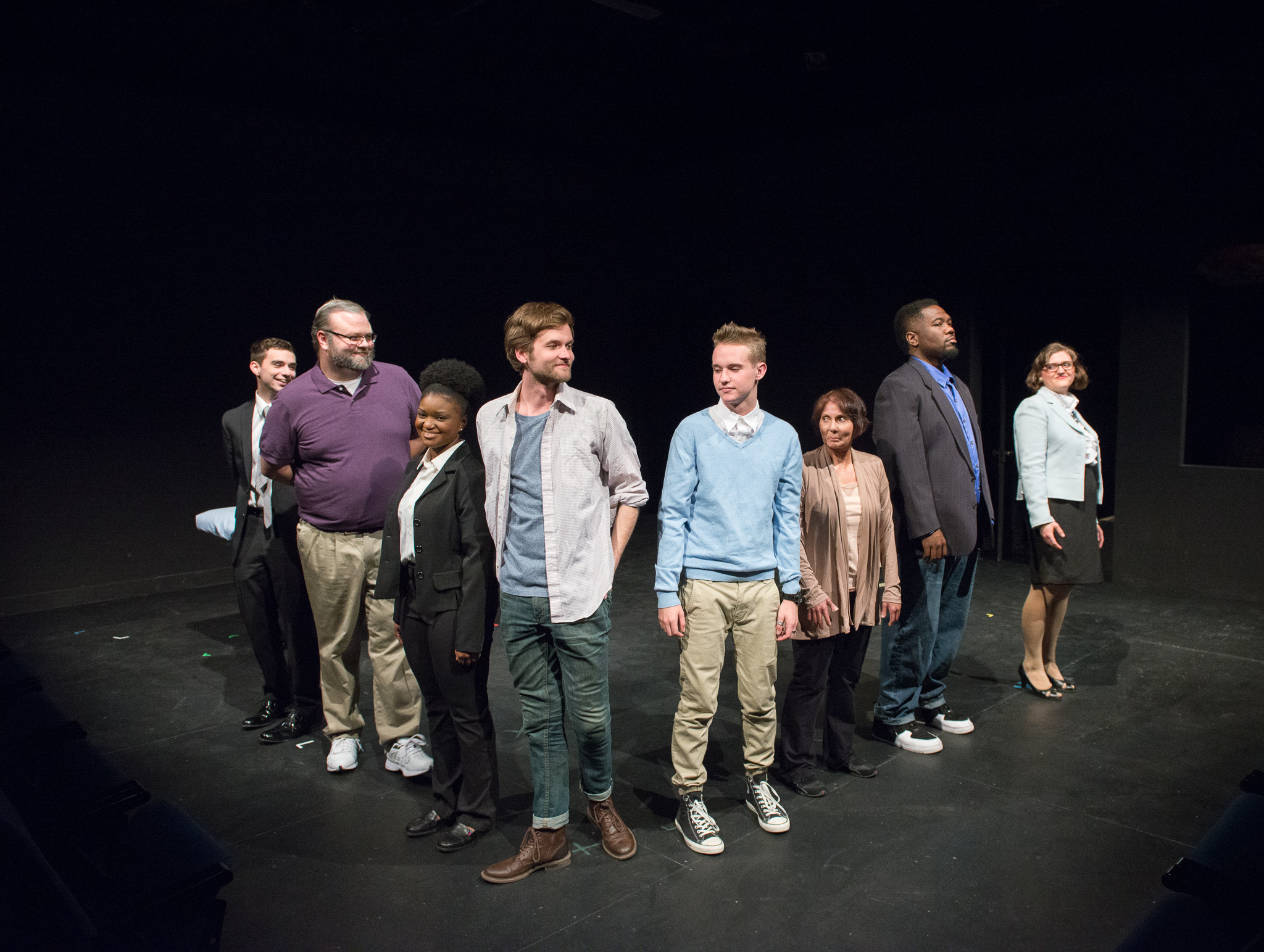Lillyanne Pham—an MFA student in Portland State’s School of Art + Design—is the 2023 recipient of the Andries Deinum Prize for Visionaries and Provocateurs. This $10,000 award will support Pham’s innovative multimedia project titled Thương, which loosely translates to love in Vietnamese.
Through this project, Pham steps into the future of augmented reality, telling a story of Vietnamese heritage with emerging digital technology.
Pham pinpoints a particular encounter that inspired the beginnings of this project. She was painting a mural at Orchards of 82nd—a subsidized housing program in SE Portland—when an older man sparked a conversation with her in Vietnamese.
“I told him I can understand him, but I can only speak a little bit of Vietnamese and he was like, ‘No, keep talking,’” Pham said. “I was thinking, ‘You don’t even know me. Why do you want to hear my broken Vietnamese?’ And he just kept telling me to keep going.”
“Me and the stranger kept talking in Vietnamese for 10 minutes or so,” Pham said. “I was just talking about random stuff, saying random words, I didn’t make any sense. I’m pretty sure at one point I was like, ‘Okay, I can count to 10!’ [At the end of the conversation], he said, in Vietnamese, ‘Just keep practicing and don’t let anyone stop you. It’s more important to shamelessly practice without being embarrassed, than it is for me to understand you.’”
Through her art practice, Pham considers her complicated relationship with her mother tongue and the associated challenges she has faced and is working to overcome. For example, she described a sense of loss in assimilating to a homogenous United States culture.
“I grew up speaking Vietnamese until first or second grade,” Pham said. “Then I went to Catholic school, and I was about to be held back. They forced my mom to teach me English, so I kind of lost my language.”
This impacted her ability to communicate with other Vietnamese people throughout her childhood and adolescence. While she could often understand what people were saying, forming a response was difficult.
“That was always a struggle with me, because I was like, ‘Am I Vietnamese enough?’” Pham said.
Pham confided in her Vietnamese peers about having trouble with grasping Vietnamese. Her peers assured her that their Vietnamese was even outdated compared to recently immigrated Vietnamese. Pham said her friend called the tongue “a time capsule.”
“I was like, ‘Wow, there’s something going on here with how memory works and how it can be decolonized as you experience it and express it,’” Pham said. “I felt like technology was an easy puzzle piece to turn something imaginary into something tangible that people can see and touch.”
Through Thương, Pham seeks to illuminate the complexities of the Vietnamese language, culture and inter-generational memory through the immigrant experience in Portland.
Her vision for the project is to create mirrors of real-life times and places and exhibit them in a digital world. Focusing on Vietnamese families in Portland and the things they hold close, she will create 3D scans of people, places and objects and display them inside a virtual reality environment.
Pham hopes to archive the memories and lived experiences of four families. Among them is the older man who encouraged her to continuously engage with the Vietnamese language.
Thương is unrestrained in regards to the sorts of experiences it aims to preserve for the Vietnamese community. “One of my participants talked about being on the bus cutting coupons with her grandma on the way to the Chuck E. Cheese on 82nd,” Pham said. “She said, ‘That’s one of my memories I really like. I don’t know if it’s important or not.’”
“I’m like, ‘Yeah, that’s super important!’ Vietnamese experiences don’t have to be about the war,” Pham said. “That is a Vietnamese experience, sitting on the bus with your grandma going to Chuck E. Cheese is in itself important.”
Thương is conscious of protecting the authenticity and self-representation of a particular community, a thoughtfulness that stems from Pham’s previous academic experiences. Prior to her time at PSU, Pham received a degree in sociology at Reed College. Her senior thesis focused on Asian American Feminism on Instagram. Studying this image-based platform through a sociological lens has informed much of Pham’s current work.
Pham has also participated in many projects far removed from digital media technologies. She served as an Americorps volunteer. In 2020, while working with a neighborhood prosperity initiative in a Northeast Portland neighborhood called Parkrose, she started a program called Youth for Parkrose. This project allowed youth to lend their voice and creative designs to their neighborhood through paid artwork and social activism.
“I figured out how we could apply for art grants in order to do that,” Pham said. “It was pretty easy for me because I knew how to write grants, I knew organizing lingo. After doing that, it just kind of snowballed from there.”
Today, Pham has more than 30 projects listed on her website. Common themes of restorative justice, community engagement and uplifting of marginalized voices are present throughout.
Pham has used art as a medium for activism and community organizing to such an extent that she has long felt hesitant to call herself an artist and instead chose to label herself a neighborhood organizer.
“I feel like everyone has that one reason they don’t want to call themselves an artist,” she said. “I stopped calling myself a neighborhood organizer a couple months ago and officially embraced the term artist.”
Pham is using Thương as an opportunity to further embrace her new title. “This project has helped me,” she said. “It’s weird to be an artist leading an art project instead of being a community organizer who’s paired with an artist doing an art project.”
The essence of Thương suggests that the line between art and community-building is perhaps not so distinguishing.
Thương is a word for love in Vietnamese, but it is not a direct translation. Unlike yêu, a Vietnamese word related to passionate or romantic love, thương is a tender, caring and innocent love often felt between younger people and their elders.
“Thương is mostly what little kids hear from elders…” Pham said. “[Growing up] I never knew there were two different types of words for love. I just thought thương was something my mom would just say,” Pham said.
Pham aims for Thương to become available to the public in Sept. 2024. It is one of several projects she is currently working on.

